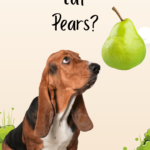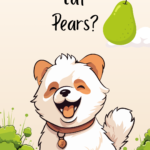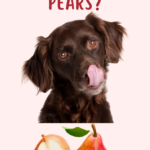Pears are a delicious and refreshing fruit packed with vitamins and fiber. But can dogs eat pears too?
Yes, dogs can eat pears in moderation and they make a nutritious and delicious snack too! They aren’t toxic and even provide a few nutritional benefits to our pups.
We’ll dive into what makes pears good for dogs below and discuss the proper portion sizes for your dog.
Can Dogs Eat Pears?
Did you know that dogs can enjoy some juicy pears in moderation? Pears are a good source of fiber, vitamin C, and vitamin K, so it’s a win-win. But remember, moderation is key – no bushels of pears for your pup!
There are some important preparation tips to keep in mind if you would like to feed pears to your pup.
- Remove the core and seeds first. The seeds and core of a fresh pear can cause digestive upset and even blockages in dogs. Be sure to cut the pear and remove these harder pieces before giving them to your dog.
- Don’t overdo it. Pears are safe for dogs to eat in moderation. Like all fruits, pears are high in sugar, so they should only be given as an occasional treat. Too many sugary foods can lead to diabetes and dental problems in dogs.
- Start with a small amount. Dogs tend to react poorly to new foods, so it’s important to introduce pears slowly. Watch out for signs of digestive upset and reduce portion sizes if your dog has difficulty tolerating it.
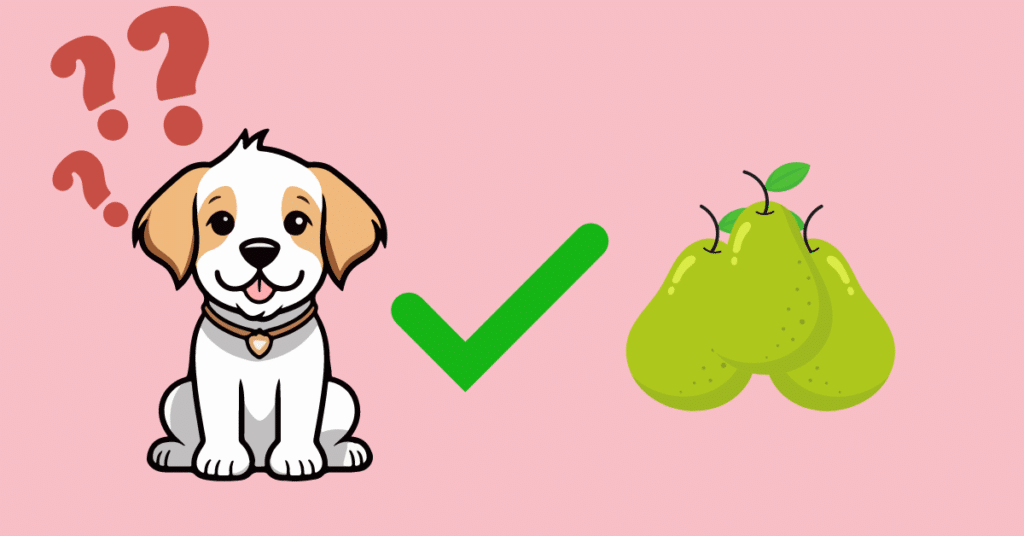
What Are the Risks of Dogs Eating Pears?
All foods have their potential downsides. While pears are widely considered safe for dogs to eat, that doesn’t mean they’re completely harmless! Here are some potential risks to keep an eye out for:
- Choking: Pear cores and stems can be a choking hazard for dogs, especially those that tend to scoff their food. Be sure to remove any hard parts of the pear before giving it to your dog.
- Upset stomach: Dogs react differently to different foods. While some will eat this ripe green fruit without any digestive problems, others may experience stomach upset. You should start with a very small amount of pear and slowly introduce more to keep digestive problems to a minimum.
- Cyanide poisoning: Pear seeds indeed contain cyanide, which is toxic to dogs. However, the amount of cyanide in each seed is extremely tiny and unlikely to cause poisoning unless a dog eats lots of seeds. Small dogs are more prone to toxicity due to their smaller body size. This is one reason I recommend removing the seeds before feeding the pear to your dog.
- Canned pears: Dogs shouldn’t eat canned pears because canned fruits often contain added sugars, syrups, and preservatives that can be harmful to dogs. Instead, stick to fresh pears.
It’s always best to start slow when introducing new foods to avoid some of these problems. You should also follow proper preparation guidelines, such as removing the core and seeds.
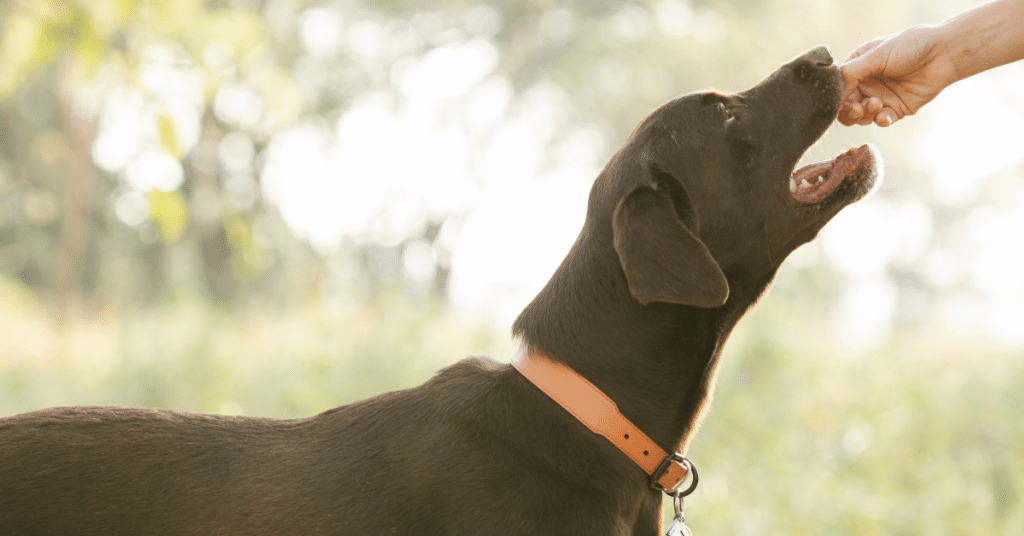
What Are the Health Benefits of Pears?
Pears are not a required part of your dog’s diet, but they can offer some health benefits when fed in moderation, such as:
- Digestive aid: Pears contain a lot of fiber, which can help regulate your dog’s digestive system and even promote weight loss. This benefit is particularly helpful for dogs who regularly experience digestive issues like constipation.
- Boost immunity: Vitamin C is not a required vitamin for dogs like it is for humans. However, added vitamin C may support a dog’s immune system.
- Hydration: Like many fruits, pears are mostly water. Eating them can help your dog stay hydrated, especially on hot days or in situations where your dog may not drink as much as they should.
However, it’s important to remember that a dog’s primary source of nutrition should come from their high-quality dog food. Good dog food should contain all the nutrition your dog needs for a complete and balanced diet. Pears are also high in sugar, so they should only be fed as an occasional treat.
How Much Pear Can Dogs Eat?
Dogs should get most of their calories from their dog food. Experts recommend that your dog consume only 10% of their daily calories from treats, and this guideline would also hold true for pears.
However, it’s a good idea to limit fruit consumption even more so, as they are high in sugar. One pear contains approximately 17 grams of sugar. Dogs should consume only a small amount of sugar, making pears out of place in their regular diet. While an occasional pear as a treat is fine, you should really avoid feeding pears regularly!
Consider only feeding your dog 3% to 5% of their daily calories in high-sugar treats like pears. Depending on your dog’s size, this might look like:
- Small dogs: A very small, pea-sized piece of pear
- Medium dogs: One-fourth of a medium-sized pear chopped and sliced
- Large dogs: Half a medium-sized pear chopped or sliced
Remember, start with less than the recommended amount to ensure your dog doesn’t develop digestive upset. If your dog tolerates the pear well, you can increase the portion size to match these suggestions.


